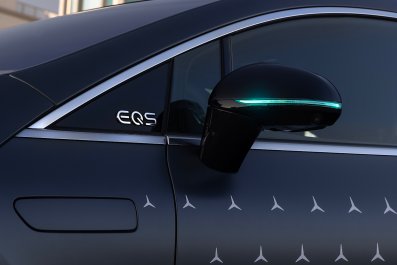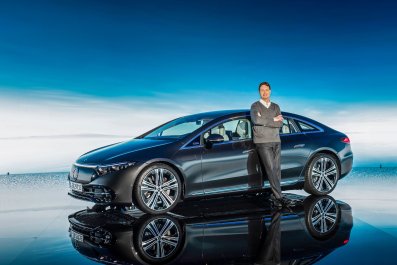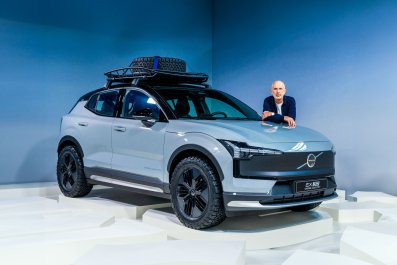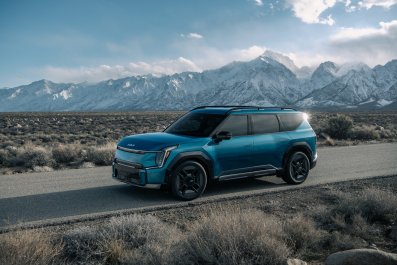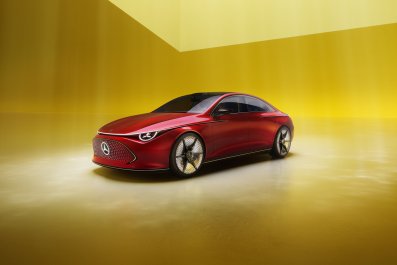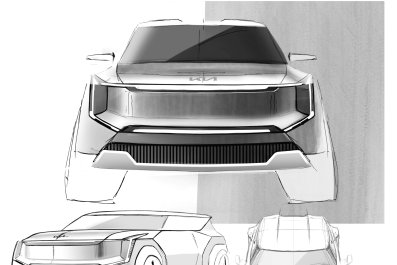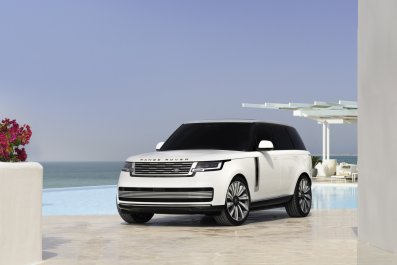2024 Sustainability Disruptor of the Year
MINI
Sustainability isn't just about buying an electric vehicle or driving in a way that saves fuel. The entire life cycle of a vehicle is considered in its footprint, from the mining of rare earth metals to make batteries and computer chips to recyclability once its usable life has ended.
MINI began making cars when the world of high-priced gasoline collided with the trend of large car ownership. Big cars weren't just costly to fill up, they were impractical for use on European roads.
"In 1959, the first Mini was created to address an energy challenge and an urban mobility challenge. The result was a car that was both energy efficient and space efficient that helped grow MINI into an enduring icon. That first Mini also showed that being sustainable did not have to be boring," a MINI spokesperson told Newsweek.
"With the wheels at the four corners, a low center of gravity in a small, light and nimble package, the Mini was fun to drive as much as it was sustainable," they said.

Those priorities remain in the latest batch of MINIs to be revealed. Attention was paid to the entire life cycle of the Cooper and Countryman during their redesign process.
MINI is one of the first companies to create a vehicle with full-body end-of-life recyclability in mind from the get-go. Considerations for the new MINI Cooper and Countryman include battery removal and recycling, as well as how easy it is to pull apart the model and recycle its various components such as plastic and aluminum for use in future vehicles.
As designers and engineers spent years creating new products, MINI's manufacturing plants were busy changing how they operated, becoming greener.
Many MINIs are made at the company's Oxford, England, plant. There, 21 heavy-goods vehicles, powered by liquified natural gas rather than petrol or diesel, move components around the site. The result is near-zero particulate matter emissions and 20 percent lower CO2 emissions than traditionally powered models.

Solar panels provide about 2.7 gigawatts of renewable power to the Oxford plant, reducing its annual carbon footprint by 1,500 tons. Incandescent bulbs have been replaced with LED lamps, and the roof of the company's Swindon, England, manufacturing facility is used to collect rainwater.
Since 2021, all of MINI's sites are net CO2 neutral using carbon offsets. Ninety-nine percent of the 780,000 tons of waste that BMW Group, MINI's parent company, generates—including packaging materials, steel and leather—is either recycled or thermally recovered. Within its vehicles, MINI makes use of secondary materials, meaning those that are made of a percentage of recycled product. Its vehicles include at least 15 percent reused material.
Secondary aluminum features prominently in their new vehicles. New MINI wheels are made of this material, with 70 percent recycled aluminum.
Untraditional, sustainable materials feature on the interior of the latest Cooper and Countryman in an aim to keep the environmental footprint as low as possible. The result is a unique double-layer color and texture combination on the dashboard and door panels made of 95 percent recycled plastic that makes MINIs even quirkier.
Even seating surfaces were ripe for innovation. "With the new family, MINI offers a completely leather-free interior. This is made possible by using innovative, recycled materials with properties similar to leather. The use of leather-free alternative surface materials enable us to cut CO2 emissions by more than 50 percent along the value chain," the spokesperson said.

Battery-electric mobility is at the forefront of the company's new model lineup.
"Electrification with emission-free mobility is also part of MINI's direction to become more sustainable. The brand is currently on a trajectory to become fully electrified by the early 2030s with a range of new electric vehicle products that will be launched between now and that time. The first of these new vehicles include the MINI Countryman Electric, the MINI Cooper SE Electric and future models including the MINI Aceman, with more to follow," said the representative.
Those models use batteries made with lithium and cobalt. The supply chains for those materials are traditionally dirty and raise human rights concerns. MINI only buys those rare earth materials from mining companies that extract from mines where employees are protected and high sustainability standards are met.
BMW Group is committed to improving conditions in less sustainable mines, supporting a project of the German development agency Deutsche Gesellschaft für Internationale Zusammenarbeit (GIZ) that is looking into the working conditions of Congolese mines and developing potential improvements.
Additionally, the company is refusing to use deep-sea minerals in its products until scientists can estimate the ecological consequences with authority. It is supporting the World Wildlife Foundation in calling for a moratorium on deep-sea mining until that time.
How We Did It
To determine the candidates for this year's World's Greatest Auto Disruptors, Newsweek's Autos team, led by Senior Autos Editor Eileen Falkenberg-Hull, compiled a list considering every major automaker in each of the award categories. Brands, teams and individuals were nominated based on their cumulative merits for the past year, after combing through each candidate's accomplishments in the areas of future product planning, business strategy, technology, marketing, engineering, sustainability, manufacturing and research and development. To be considered, candidates had to be employing executive decision-making, corporate strategy, product development and publicity in a way that is driving fundamental, transformative change in the automotive market, with measurable real-world results—or have clear and demonstrable potential to do so. The Legacy award honors an individual who has achieved these results over decades in the industry. The list of nominees was narrowed by Autos editors, including Jake Lingeman. Winners were chosen after a consensus was reached amongst the Autos team and Newsweek top editors.



